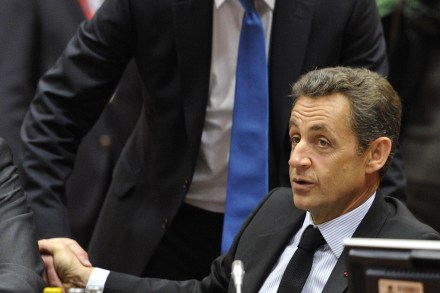Europe’s new battlefield
The long flight from Australia should give David Cameron plenty time to think about Europe, and how it just won’t go away. He didn’t want this battle — not now, not ever. But in the Daily Telegraph today, the first in what will be a weekly column, I lay out the battlefield that awaits him on his return. First, this bailout is not the end. A trillion Euros needs to come from somewhere, and today the Chinese are being tapped up — God knows what we’ll agree to in return. But that doesn’t address what is, as Mervyn King has said, a solvency issue rather than a liquidity issue. And



















